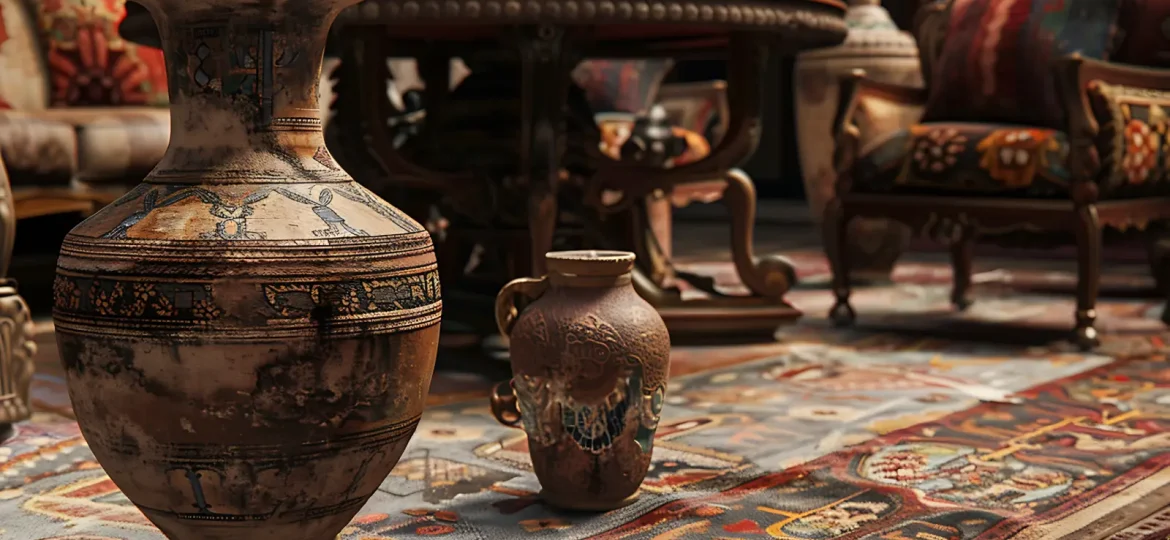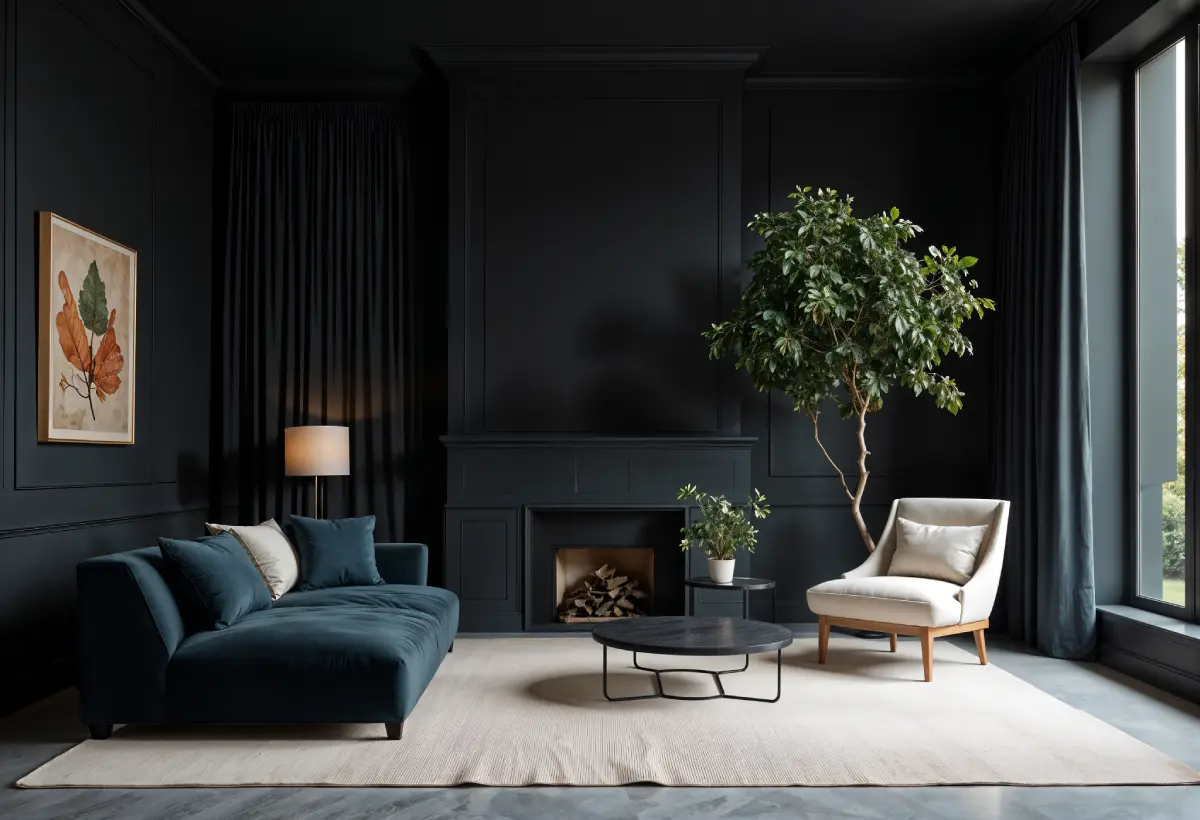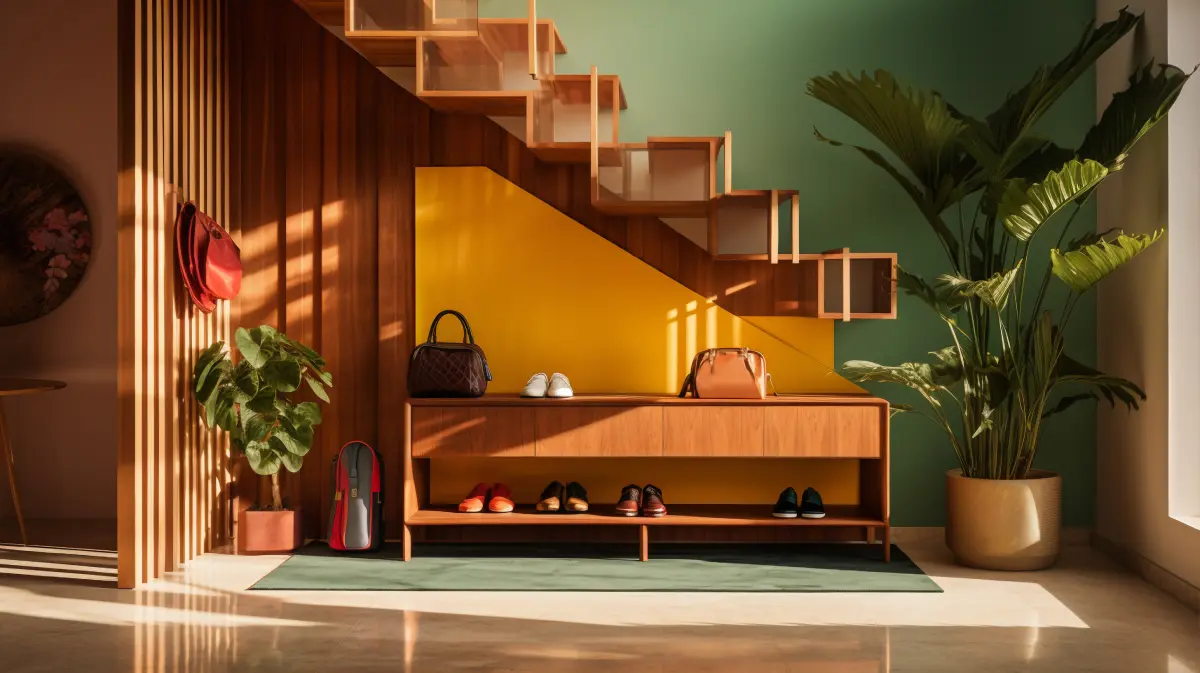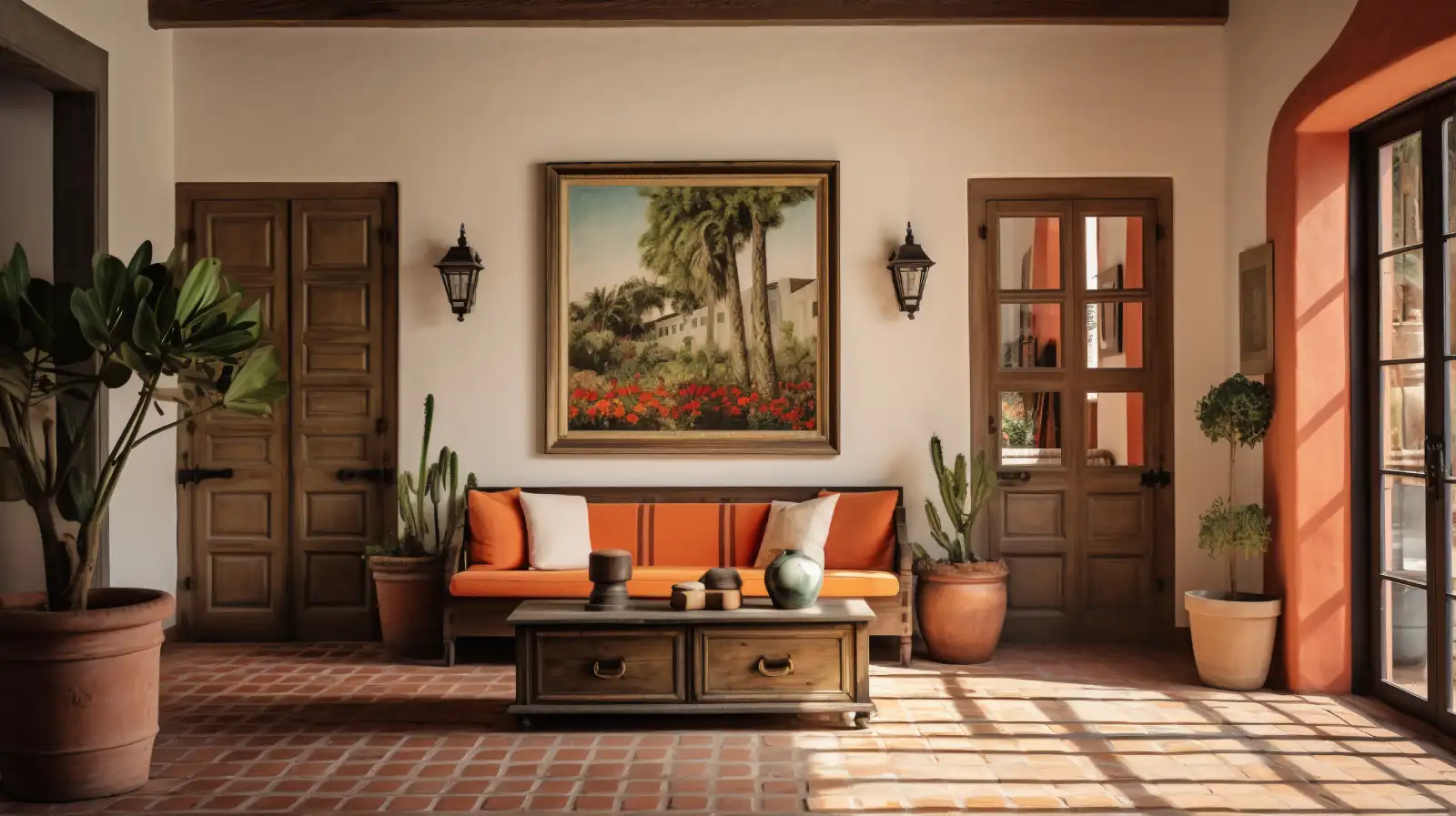
Turkey, a land where East meets West, offers an unparalleled canvas for home design. For expats and foreign investors, the allure of Turkish properties, whether an elegant Istanbul apartment or a serene Aegean villa, lies not only in their prime locations but also in the potential to create truly unique living spaces. This guide delves into the art of decoration Turkey, providing essential tips to blend contemporary aesthetics with the rich cultural heritage, ensuring your modern home is both comfortable and distinctly Turkish.
Key Features of Modern Decoration Turkey
Modern decoration Turkey is characterized by an elegant balance, eschewing excessive ornamentation for clean lines, thoughtful textures, and strategic accents.
- Neutral Hues and Natural Materials: The foundation of modern Turkish interiors often involves a soothing palette of neutral colors – creams, grays, whites, and soft beiges. These provide a calming backdrop that allows natural materials to take center stage. Think rich, dark woods like walnut or oak for flooring and furniture, cool marble surfaces for countertops and accents, and warm copper or brass details for lighting and decorative items. These materials not only add sophistication but also resonate with traditional Turkish craftsmanship.
- Smart, Layered Lighting Ecosystems: Beyond mere illumination, modern Interior decoration Turkey emphasizes creating an ambiance through layered lighting. This involves a combination of ambient (general), task (functional), and accent (decorative) lighting. Recessed lighting, sleek pendant lamps, and strategically placed floor lamps can highlight architectural features, define zones within open-plan living areas, and create a warm, inviting glow. Turkish mosaic lamps, while traditional, can be incorporated as unique accent pieces, casting intricate patterns and adding a touch of exotic charm without overwhelming a modern space.
- Functional, Multipurpose Furniture for City Apartments and Villas: Space optimization is key in both bustling city apartments and sprawling villas. Modern Turkish interiors favor functional furniture that serves multiple purposes – modular sofas, extendable dining tables, and built-in storage solutions. This approach maximizes utility without sacrificing style, reflecting a practical yet elegant design philosophy.
The importance of Interior decoration Turkey for expats extends beyond aesthetics; it’s about creating a sense of belonging and well-being. A well-designed home can be a sanctuary, a reflection of personal taste, and a comfortable base for exploring a new culture.
Here’s a comparison highlighting the distinct characteristics:
Practical Tips for Expats’ Modern Homes

Navigating the local design scene can be an exciting part of settling in.
- Shopping Advice: Turkish Furniture Markets, Local Artisans: Turkey boasts an incredible array of furniture markets and artisan workshops. For modern pieces, districts like Modoko (Ümraniye, Istanbul) offer hundreds of stores under one roof, showcasing contemporary Turkish and international designs. For unique accent pieces, exploring local bazaars (like the Grand Bazaar or Spice Bazaar in Istanbul) and smaller artisan shops can yield treasures such as hand-painted ceramics, authentic kilim rugs, or intricate copperware. These smaller, handmade items can be the perfect turkish home decor touches to add character.
- Combining Turkish Home Decor Pieces with Modern Living: The key to successful integration is balance. A modern sofa can be adorned with cushions featuring traditional Turkish motifs. A minimalist dining area can be accented by a stunning Ottoman-inspired chandelier. A contemporary bathroom might incorporate a hand-beaten copper basin or vibrant Iznik tiles as a splashback. The goal is to create dialogue between the old and new, allowing individual turkish home decor pieces to stand out without clashing.
- Budget Tips for High Style at Low Cost: Achieving a sophisticated look on a budget is entirely possible in Turkey.
- Thrift and Upcycle: Explore second-hand markets (bit pazarı) for hidden gems that can be restored or repurposed.
- Local Production: Turkish-made furniture and textiles are generally more affordable than imported brands, often without compromising on quality.
- DIY Accents: Simple elements like throw pillows, wall art, or even repainting a piece of furniture can dramatically alter a space’s feel. Look for fabrics in local markets to create custom soft furnishings.
Real-World Examples & E-E-A-T
Many expats have successfully transformed their Turkish properties into stunning modern homes. For instance, a British couple in Cihangir, Istanbul, renovated their historic apartment, maintaining the original high ceilings and ornate plasterwork but furnishing it with sleek, contemporary pieces and minimalist decoration Turkey. They incorporated a grand, modern chandelier in their living room, contrasting beautifully with antique wooden doors, and used a neutral color palette throughout, allowing their collection of Turkish home decor (such as a vintage kilim rug and a few carefully selected ceramic bowls) to serve as artistic focal points.
While we avoid listing the same examples as mentioned in other Yahya Construction articles, particularly our guide on Turkey interior design.
-
Sustainability & Long-Term Value in Decoration Turkey
Investing in thoughtful decoration Turkey extends beyond immediate aesthetics to impact long-term value and environmental footprint. When selecting materials for modern Turkish interiors, prioritize durability and sustainability. Opt for durable flooring options like high-quality wood or natural stone that can withstand years of use and offer timeless appeal. For lighting, energy-efficient LED fixtures are a smart choice, significantly reducing electricity consumption. Similarly, selecting energy-efficient appliances contributes to lower utility bills and a greener home. Eco-friendly paints with low VOCs (volatile organic compounds) improve indoor air quality, a crucial aspect of a healthy living environment.
Maintaining your decor through regular cleaning and timely repairs is essential to preserving its beauty and functionality, thereby protecting your property’s value. Choosing quality, sustainable design elements for your expat property design in Turkey not only enhances your daily living but also makes your property more appealing to future buyers or renters. A well-maintained home with eco-conscious features is a valuable asset in the competitive Turkish real estate market, demonstrating foresight and care in your Interior decoration Turkey choices.
Common Mistakes to Avoid in Modern Turkish Home Decoration

While the journey of decoration Turkey is exciting, expats often encounter pitfalls that can hinder their design goals. One common mistake is over-mixing styles, leading to a chaotic rather than cohesive look. While blending modern with traditional turkish home decor is encouraged, ensure there’s a dominant style with accents from the other, rather than an equal clash. A practical solution is to stick to a core aesthetic (e.g., modern minimalist) and introduce traditional elements sparingly as focal points.
Another frequent error is picking oversized furniture for small spaces, a common issue in many city apartments. This can make rooms feel cramped and impractical. Always measure your space accurately and opt for multi-functional, scaled-down furniture pieces. Neglecting building or permit regulations is a serious misstep; any structural changes or significant remodels require proper permits in Turkey. Always consult with a local architect or a reputable construction company (like those detailed in our guide on how to choose the right construction company in Turkey) to ensure legal compliance. Finally, poor lighting planning can undermine even the best Interior decoration Turkey. Avoid relying solely on overhead lighting; instead, create a layered lighting plan with ambient, task, and accent lighting to enhance functionality and mood. Emphasizing the importance of using reliable local experts from the outset can prevent these common and costly mistakes.
Implementation Checklist
To ensure a smooth and successful expat property design Turkey journey:
- Match Colors/Materials to Turkish Taste and Context: While prioritizing your preferences, understand the prevailing aesthetic. Neutral foundations are popular, allowing for pops of color through authentic turkish home decor.
- Permits & Compliance: Any significant structural changes or major renovations will require building permits in Turkey. It’s crucial to consult local regulations and secure the necessary permits to avoid complications. For comprehensive guidance, refer to our Building Permits in Turkey Guide 2025.
- Tips on Selecting Trustworthy Contractors: Choosing the right professionals is paramount. Look for contractors with a strong portfolio in residential projects, transparent pricing, and good client testimonials. Our guides on Turkish construction companies and how to choose the right construction company in Turkey offer invaluable advice. For extensive projects, consider firms offering turnkey construction services in Turkey for a streamlined process. If your project involves significant structural work, especially for multi-story buildings, understanding steel construction projects in Turkey can also be beneficial.

Frequently Asked Questions (6–8 Q&A)
-
- What are the key characteristics of modern decoration Turkey for expat homes? Modern decoration Turkey for expat homes emphasizes neutral color palettes, natural materials like wood and marble, layered lighting, and functional, multi-purpose furniture. The aim is a serene, sophisticated, and comfortable space that subtly integrates turkish home decor elements.
- How do I choose materials and furnishings suitable for small apartments in Turkey? For smaller apartments, prioritize light colors to expand the space visually. Opt for compact, multi-functional furniture (e.g., sofas with hidden storage, extendable tables). Utilize vertical space with shelving and tall, narrow pieces. Natural light is crucial; avoid heavy curtains.
- Are there readily available Interior decoration Turkey specialists for foreigners? Yes, Istanbul and other major cities have a growing number of Interior decoration Turkey specialists who cater to international clients. Many have English-speaking staff and a portfolio showcasing modern, expat-friendly designs. Online platforms and expat communities can also provide recommendations.
- What are the current trends in turkish home decor for 2025? Current trends in turkish home decor for 2025 lean towards sustainable practices, biophilic design (integrating nature), smart home technology, and a continued appreciation for handcrafted artisan pieces. Earthy tones, textured fabrics, and subtle geometric patterns are also popular.
- Does too much ornamentation lower home value in modern Turkish interiors? Generally, excessive ornamentation can deter buyers seeking modern aesthetics and may not align with the trend of modern Turkish interiors. While traditional elements are cherished, overwhelming a space with too many ornate pieces can make it feel cluttered or dated, potentially impacting its market value, especially for those interested in residential vs commercial construction Turkey and its resale potential.
- Where is the best place to source authentic Turkish decor as an expat? Authentic turkish home decor can be sourced from various places. Grand Bazaar and Spice Bazaar in Istanbul are famous for textiles, ceramics, and copperware. Smaller local artisan shops in historic districts often offer unique, handmade items. For furniture, large markets like Modoko or independent design boutiques are excellent choices.
- Are there permit requirements for interior remodels in Turkey? Minor aesthetic changes like painting or changing light fixtures generally do not require permits. However, any structural alterations, changes to plumbing or electrical systems, or significant layout modifications typically require a building permit in Turkey. Always consult with a local architect or contractor to confirm specific requirements for your project to ensure compliance.
Navigating the vibrant “Turkey interior design” landscape, especially in Istanbul, requires informed decisions and reliable partnerships. By utilizing these essential tips for hiring experts, foreign investors, expats, and developers can ensure their projects are not only aesthetically pleasing but also culturally relevant, compliant, and cost-effective. For personalized advice and to explore expert local design and construction solutions for your next project, we highly recommend consulting with experienced local professionals.

